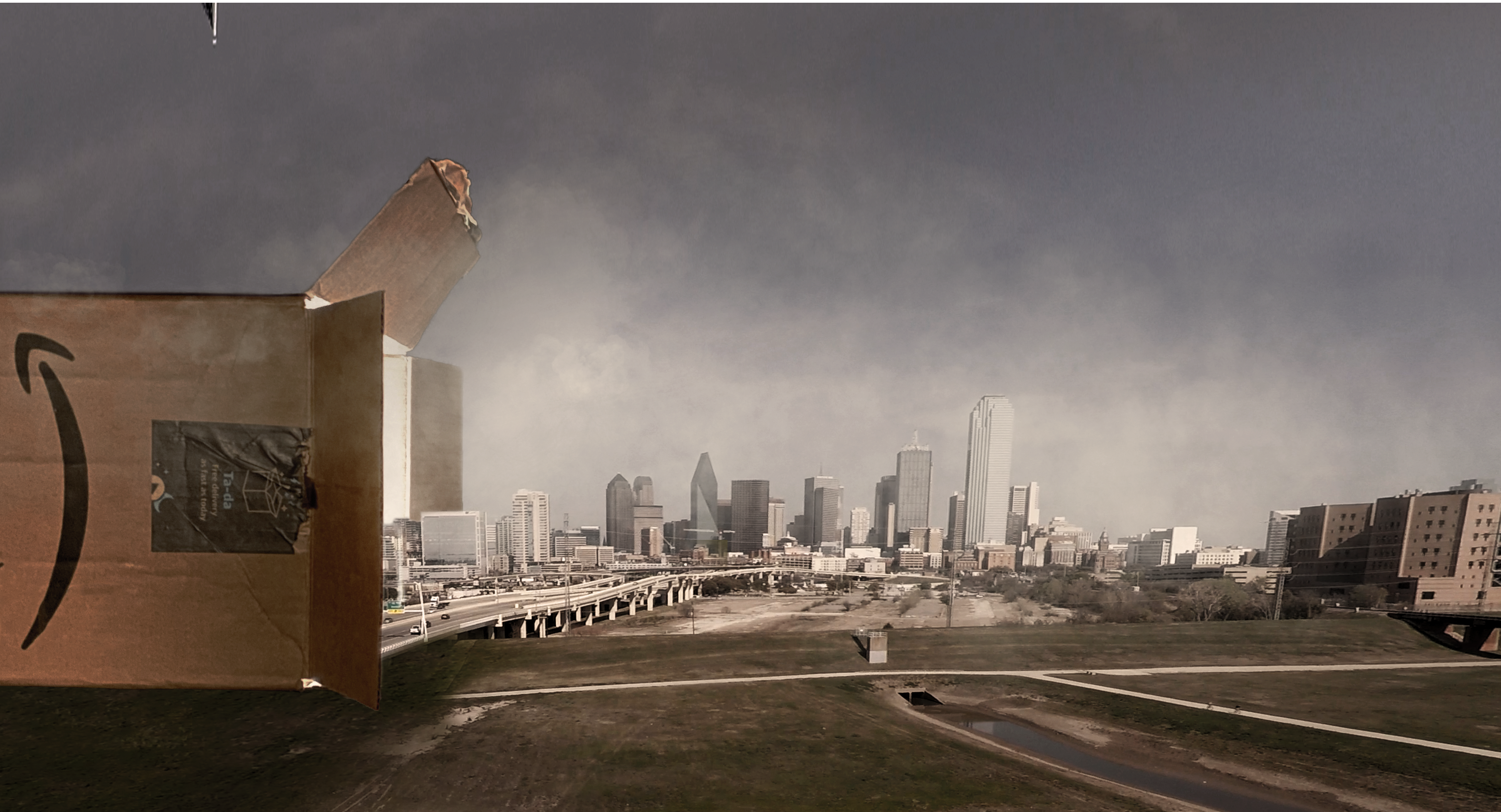
By Evan Meade
Back in July, four Congressmen sent an open letter to Facebook asking them to halt development on their new “cryptocurrency” called Libra. The Representatives, all members of the U.S. House Committee on Financial Services, cited serious concerns relating to “privacy, trading, national security, and monetary policy.” They believed that such a currency would be worldchanging, but probably for the worse. Considering the fact that over a quarter of the world’s population is active on Facebook, it is not unreasonable to imagine Libra becoming a global reserve currency, right alongside the dollar, euro, and yen. The only difference is that instead of being managed by a neutral third party, like a central bank, it would be run by a small cabal of Silicon Valley giants. In other words, the same people at the center of multiple data privacy and political engineering scandals want to take a shot at running a two billion person economy. And yet, the weirdest thing about this whole situation isn’t that a megacorporation is trying to create its own currency; it’s that regulators have anything to say about it at all.

The incredible technological developments of the past 50 years have brought about monumental progress, often outpacing regulation by years or even decades. However, these impressive developments have also created the implicit myth that such innovation was only possible because it was unburdened by regulation. We now almost fetishize the image of the rags-to-riches Silicon Valley “disruptor,” who will step over anyone and anything to make the next big hit. Over the years, that vision has been carried out to its logical extreme in the form of unfairly anti-competitive behaviors. Deep pockets have enabled a handful of companies to buy out any potential competitors. The resulting oligopolies thus lack meaningful competitive pressure, resulting in exploitative and manipulative behavior towards consumers and workers. Luckily, numerous groups, including the Department of Justice and the Federal Trade Commission, have started to investigate these monopolistic practices. At the moment, Facebook, Google, Amazon, and Apple are all in the hot seat for 16 federal, state, and Congressional antitrust investigations. In the context of growing public distrust, it seems necessary and likely that big tech companies will be broken up in order to rekindle fair competition and protect consumers.
Before going any further, I think it’s important to draw a clearer distinction between fair competition and unfair competition. On a surface level, the two often appear similar, and so one may see government interference as an unjust punishment levied against legitimately successful companies. That’s a very intuitive interpretation of competition which is, admittedly, often accurate. For instance, Starbucks is the largest coffee chain in the world, and for good reason. Walk into any one of their 30,000+ stores and you’ll receive the same consistent, high quality, customizable beverage. Essentially, they succeed because they are uniquely skilled at delivering a great coffee buying experience, and in doing so they provide greater value to their customers than other competitors. This maximization of value through competition is the driving principle behind capitalism, and when it works well, society benefits as a whole.
So then what constitutes unfair competition? While that’s a very subtle and difficult question when considered abstractly, it’s actually pretty easy to understand when using specific examples. Steve Wozniak, co-founder of Apple turned advocate of big tech breakups, gave one such example during an interview with Bloomberg back in August. To paraphrase, he said to imagine a huge national chain of gas stations; the company is very successful and clearly dominates its industry. One day, they decide to start producing cars as well, but they’re really bad at it. The car is basically a rolling coffin that gets five miles to the gallon. Now, in a fairly competitive market, they shouldn’t be able to sell a lot of cars because other companies can produce better products at the same price. But our wily oil tycoons are maliciously creative, and so they design and patent a new gas nozzle that only works with their company’s cars. Then, they replace the nozzles at all of their gas stations with the new design. Now, anyone who wants to get gas conveniently has to buy one of their terrible cars. The fact that the company leveraged dominance in one market to create artificial success in another is what makes the competition unfair. Rather than succeeding by offering the customer a better product or a better price, they have made them entirely worse off. Competition has occurred, but societal value has ultimately decreased. In economics, this counter-intuitive result is called a “market failure,” and must be addressed through appropriate government interference. In this case, the Federal Trade Commission, which enforces antitrust legislation in the U.S., might order all gas stations to use a standardized and publicly available design. Doing so would promote competition, increase access, and ensure safety, which are all things that benefit society as a whole.
This kind of regulatory thinking has deep roots in times of historic corporate dominance. The most visceral example of anti-competitive practices run amok occurred during the second half of the 19th century in what is referred to as the “Gilded Age.” Following the Civil War, the U.S. witnessed impressive economic growth, fueled largely by technological developments. New steel production techniques facilitated rapid railroad expansions across the country. In turn, these railroads enabled a whole slew of transformed industries to expand through access to cheap shipping. Technological innovation was quite obviously the engine behind such incredible growth. And yet, these years were also defined by unfair competition and rampant workers’ rights abuses. Child labor was common in factories, where newly urbanized families worked for a barely livable wage. Deaths and injuries were commonplace, yet there were no systems in place for workers’ compensation or job security. For all but a few, these decades represented the incredible human cost behind progress. It was only the notion of remarkable economic growth which gave those years a gilded appearance, concealing the deep societal issues of the era. In the end, new legislation and agencies were needed to break up vicious monopolies and correct the economy.
To be clear, it is easy to see how this kind of stuff can seem archaic and irrelevant in today’s world. The measures taken then to restore balance to the economy were a reflection of their time. Those old bills conjure up images of elderly industrialists dressed like the Monopoly Man conducting business over whiskey and cigars. (I’m not a historian, but I believe this to be an accurate depiction.) What use do these laws still have? As it turns out, they are still highly relevant, and have resulted in some interesting cases for Silicon Valley in particular. Back in 2010, for example, the Department of Justice filed an action against Intel, Apple, Google, and others, citing their anti-competitive hiring behaviors as a violation of the Sherman Antitrust Act — an act, it should be noted, which went into effect all the way back in 1890. In this modern case, it turns out that some tech companies had established mutual agreements which severely limited their employees’ ability to move between companies. Cold calling, which is a dominant form of recruiting for high tech jobs, was effectively prohibited as part of the agreements. As a result, employees were more likely to stay stuck in their current position at their current company even if they were seriously undervalued. In other words, the companies conspired to underpay their workers. That’s right, the same law that helped break up conglomerates like Standard Oil back in 1890 had to be used again in 2010. Such a shocking fact seems to suggest that, left unregulated, businesses turn towards whatever exploitative behavior they can get away with. And frankly, this case is just the tip of a really shitty, melting iceberg.
Yeah yeah, I know the exploitation of software engineers who make six figure salaries doesn’t exactly attract the most sympathy. (Unless you are one, which you very well might be.) While it’s obviously wrong in principle, one may rightfully ask, “who cares?” The tech sector must be entirely staffed by geniuses wearing sandals and faded hoodies. I mean, it’s certainly a lot different than the Gilded Age, when hazardous working conditions, an absence of job security, and poverty wages ran rampant, right?
Right?
Wrong. Behind every rockstar programmer is an army of underpaid wage laborers in the service, logistics, and manufacturing sectors. Most people are probably already aware of this issue to some extent due to extreme examples from overseas. Child labor is tragically common in mining operations for battery materials throughout the Democratic Republic of the Congo. “Suicide nets” had to be installed in Chinese electronics factories to prevent impoverished workers from killing themselves. Similar stories can be found in just about any economically disadvantaged region, areas which are often vital to the tech sector. It is a truly depressing juxtaposition to have 21st century goods being produced in 19th century labor conditions. So why do atrocities like this still exist? One likely answer is simply a lack of other economic opportunities. Possibly due to a lack of education, infrastructure, stability, or all of the above, workers in these regions may not have any other options to make a living. It would stand to reason then, that a highly developed country with a large economy and representative government would have a perfectly content, fairly treated workforce, right?
Right?
Wrong again. Even workers in the U.S., the U.K., and other European nations face inhumane conditions with few to no protections, albeit to a less lethal extent. One of the most telling examples of this fact has to do with Amazon’s delivery services. Amazon, which ships billions of packages every year, has seen tremendous growth in recent years thanks to their Prime subscription service. The pitch is simple: pay a flat monthly or annual fee to get just about anything shipped to your doorstep in two days or less. That’s one hell of a feat. So how do they actually pull something like that off while still pricing the service so competitively? The short answer is brutal working conditions. Amazon delivery drivers are given routes so long and complex that they have to urinate into bottles in their cars to keep pace. Warehouse workers must often do the same to avoid slipping below maximum productivity and being fired as a result. There is a clear willingness on the part of management to drive results at the cost of personal hygiene, safety, and dignity. It is frightening to see such behaviors in countries which claim to be bastions of freedom.
A lot of these revelations about Amazon came out earlier this year and caused a sizable media blitz as a result. In fact, it was so incendiary that Amazon was pressured to raise its minimum wage to $15 and hour. And yet, even that was not as good as it seems — coupled with that raise was a massive slash in bonuses. So, while workers’ wages went up, many paychecks still went down. By that time though, the media had turned to other stories.
This all begs the question, who exactly is behind this shit? And the answer is glaringly obvious: tech moguls, venture capitalists, and Wall Street investors. I mean, what does it say about this country that Jeff Bezos owes at least a portion of his wealth to the fact that thousands of his employees have to piss in bottles every day? This man, worth over $100 billion, controls half of the U.S. online retail market with just one portion of one of his companies. At the same time, Amazon Web Services controls a third of the web hosting market, Prime Video is one of the most competitive digital streaming services, and Amazon Alexa is the leading digital assistant system. All of these endeavours are arranged in perfect synergy to allow each of them to dominate their respective industry, even if they might not all succeed by themselves. Alexa never would have gained such widespread adoption without free integration for Prime Music, Prime Video, and Amazon Shopping. It may not be the best digital assistant, but it’s the one that’s winning out anyways. Returning to our definitions at the beginning of the article, this is an obvious example of unfair competition: the company leveraged dominance in one market to create artificial success in another.
This kind of anti-competitive behavior is not unique to Amazon either. Facebook is notorious for buying up its competitors to maintain social media dominance. When Instagram was just starting to gain popularity, Mark Zuckerberg made headlines by snapping it up for $1 billion. WhatsApp, which competed with Facebook Messenger, was similarly acquired in a clear act of market consolidation. As if that weren’t enough, Facebook completely altered the app’s mission of encrypted, private communication by introducing sketchy data collection techniques. Real innovation was thus stopped in the interest of preserving the tech giant’s dominance. As to where all that data has been going, look no further than the Cambridge Analytica scandal, where Facebook irresponsibly sold voter information which was used by massive misinformation campaigns in 2016.
I could keep discussing different tech moguls and the specific practices they use to stifle competition, but frankly, this magazine only has so many pages. What I think is far more important than simply listing out all the different corporate offenders is providing the tools needed to identify these unfair practices so that you can begin to spot them in your everyday life. Whether they are conspiring to exploit their employees or manipulating their customers, the point is that regulators need to catch up with the immense power these companies wield, and the reckless manner with which they do so.
Luckily, such change may be coming en masse. It appears that big tech’s monopolistic activities have finally passed some unseen tipping point, and a whole platoon of governmental bodies are coming for them all at once. In fact, there’s almost too many to follow of them all. Luckily, the New York Times is maintaining a webpage tracking the number of pending, possible, or resolved cases for each of the big four mentioned here. At the low end, Apple and Amazon each have three antitrust cases pending or possible as of this writing. Google likely has one data privacy investigation and four antitrust investigations, one of which is being carried out by a whopping 50 attorneys general. That’s every state except for California and Alabama, with Puerto Rico and Washington, D.C. joining the fight as well. That kind of legal firepower has historically been used for some of the country’s biggest corrective actions, like the Big Tobacco lawsuits of the ’90s and the current cases against pharmaceutical companies for their role in the opioid crisis. As for Facebook, the company is in the middle of an ungodly number of cases with issues running the gamut from antitrust to privacy to discrimination to creation of their “cryptocurrency.” As best they can tell, the New York Times pegs the total number of Facebook investigations at 11, spanning federal, state, and Congressional levels.
So what does the future hold for the big four? If I can speculate for just a minute here as things wrap up, I’d like to make some incredibly bold predictions that people can mock me for in about three years. First of all, Facebook seems ripe to be broken up into a number of companies, essentially one company per app/product. That means Instagram, WhatsApp, and Oculus VR will all become fully independent competitors, dramatically breaking up the social media and digital communication markets. As it stands, Facebook is just too obviously a monopoly to be left intact after the dust has settled. Another theory I subscribe to, which I first heard from NYU professor Scott Galloway, is that Amazon will spin off Amazon Web Services to try to avoid a breakup. However, I think they’ll get hit with one anyways, and their entire delivery logistics network will be spun off as well, which will be followed up by heavy investigations from OSHA. Otherwise, Amazon would continue to be an insane case of vertical integration, like the steel trusts of the 19th century which owned every stage of the production process. Finally, I think that Apple and Google will both remain intact, but for different reasons. Apple, while incredibly profitable, just doesn’t occupy the same kind of monopolistic position as any of the other companies, and has a comparatively better track record on data privacy and other issues. There’s not enough cause to break them up, at least not yet. As for Google, I think they’re simply too big to be touched at this point. Sure, they’ll get a slew of fines for a variety of anti-competitive practices, but no one would dare risk upsetting the company’s stability. They are simply too crucial to the functioning of every other business, individual, and government in the world. They have ascended to the divine ranks of Wells Fargo, Citigroup, and JPMorgan Chase.
No matter what the exact outcomes of these cases are, it seems clear that something dramatic will happen. Big tech has been poised for a regulatory break up for some time now, and a confluence of current events has finally pushed the issue to the forefront of public discourse. It’s time for us all to impeach the monopolistic “disruptors” so that the real innovators can get back to work again, and start changing our world for the better.

Evan Meade (sophomore | physics)
CEO of Crocs, Inc. and oblivious winner of The Game.
Comments